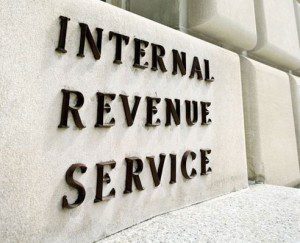 In response to President Trump’s Executive Order 13877, “Improving Price and Quality Transparency in American Healthcare to Put Patients First,” the Treasury Department and the IRS were directed to consider ways to expand the use and flexibility of Health Savings Accounts (HSAs) and High Deductible Health Plans (HDHPs) consistent with the current HSA rules. Treasury Department Notice 2019-45, effective July 17, 2019, expands the list of preventive care benefits permitted to be provided by a HDHP without a deductible.
In response to President Trump’s Executive Order 13877, “Improving Price and Quality Transparency in American Healthcare to Put Patients First,” the Treasury Department and the IRS were directed to consider ways to expand the use and flexibility of Health Savings Accounts (HSAs) and High Deductible Health Plans (HDHPs) consistent with the current HSA rules. Treasury Department Notice 2019-45, effective July 17, 2019, expands the list of preventive care benefits permitted to be provided by a HDHP without a deductible.
To expand the availability of services and treatments, the Notice explains that certain medical care services, including treatment and prescription drugs for certain chronic conditions, can be classified as preventive care for someone with that chronic condition. This allows HDHPs to cover these additional services and prescriptions at 100% under a HDHP, since they are now re-classified under the Notice as “preventive care.” The Notice specifically lists those chronic conditions which will now be classifiable as preventive care with respect to an individual with the relevant chronic condition.
However, for the HDHP to be compliant with these new rules, two separate conditions must be met for the chronic condition medical care or prescription to be considered preventive.
- Criteria. Each medical service or item, when prescribed or performed for an individual with the related chronic condition, must meet all the following criteria:
- The service or item must be low-cost. This means that no high cost brand or generic drugs or treatment is eligible to qualify a treatment or prescription drug as preventive.
- There must be medical evidence supporting high cost efficiency (a large expected impact) of preventing exacerbation of the chronic condition or the development of a secondary condition when using the low-cost treatment or prescription.
- There must be a strong likelihood, documented by clinical evidence, that with respect to the class of individuals prescribed the item or service, the specific service or use of the item will prevent the exacerbation of the chronic condition or the development of a secondary condition that requires significantly higher cost treatments.
2. The List. Only those conditions listed below qualify as preventive care under a HDHP:
| Preventive Care for Specified Conditions | For Individuals Diagnosed with |
| Angiotensin Converting Enzyme (ACE) inhibitors | Congestive heart failure, diabetes, and/or coronary artery disease |
| Anti-resorptive therapy | Osteoporosis and/or osteopenia |
| Beta-blockers | Congestive heart failure and/or coronary artery disease |
| Blood pressure monitor | Hypertension |
| Inhaled corticosteroids | Asthma |
| Insulin and other glucose lowering agents | Diabetes |
| Retinopathy screening | Diabetes |
| Peak flow meter | Asthma |
| Glucometer | Diabetes |
| Hemoglobin A1c testing | Diabetes |
| International Normalized Ratio (INR) testing | Liver disease and/or bleeding disorders |
| Low-density Lipoprotein (LDL) testing | Heart disease |
| Selective Serotonin Reuptake Inhibitors (SSRIs) | Depression |
| Statins | Heart disease and/or diabetes |
Important Note: The Notice is very clear that the criteria does not expand the scope of preventive care beyond the above list. That means that medical care services or prescriptions that meet (or may meet) the criteria but are not on the list are not treated as preventive care as a result of this Notice or on any other basis.
If you are interested in updating your plan language to allow medical care and prescription treatments identified on the list above to pay at without deductible (or at a less deductible) under your HDHP, please contact MedBen Compliance Department or your Account Representative. If you have questions regarding this summary, please contact Senior Vice President Caroline Fraker at 800-851-0907 or cfraker@medben.com.
